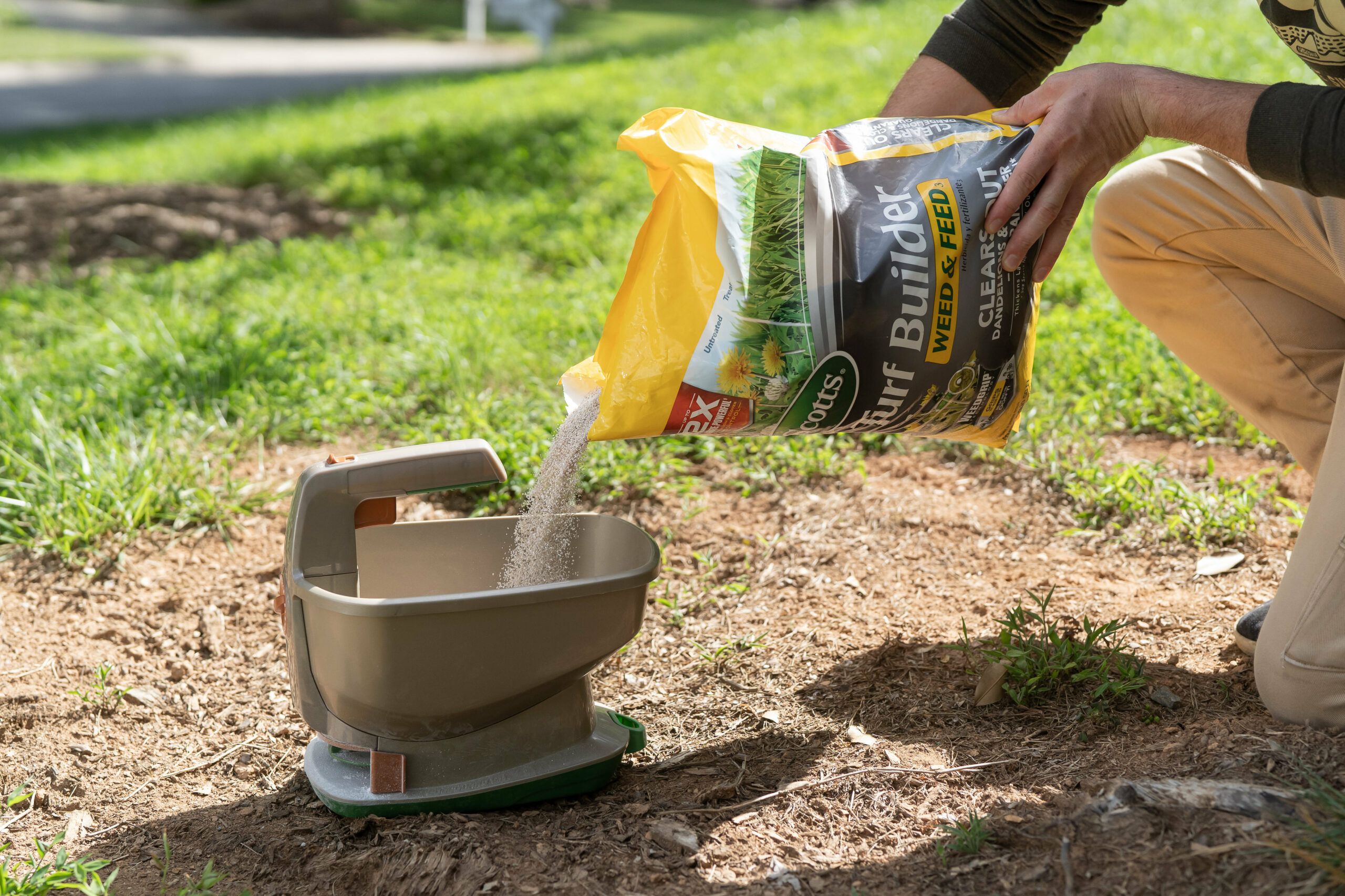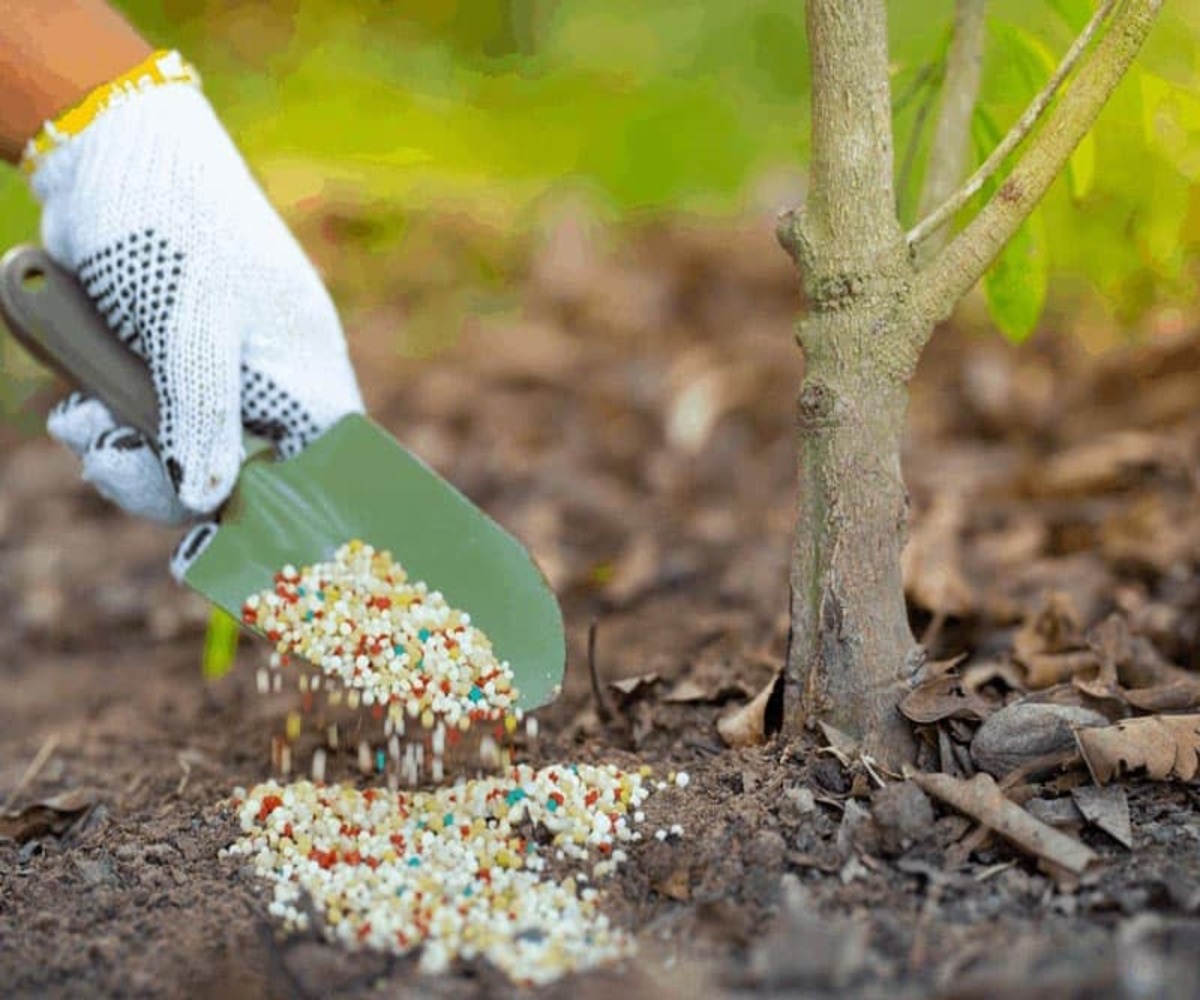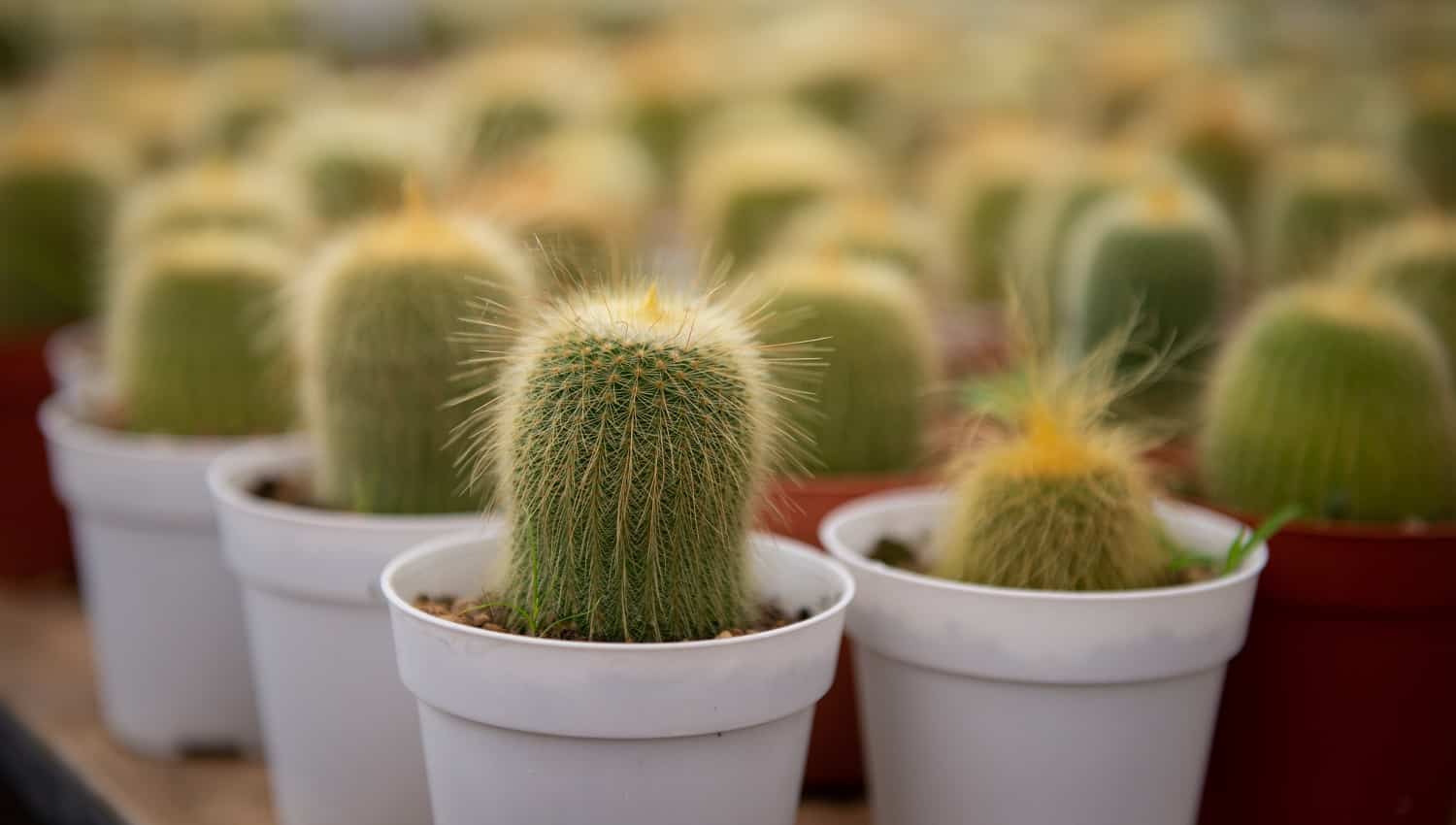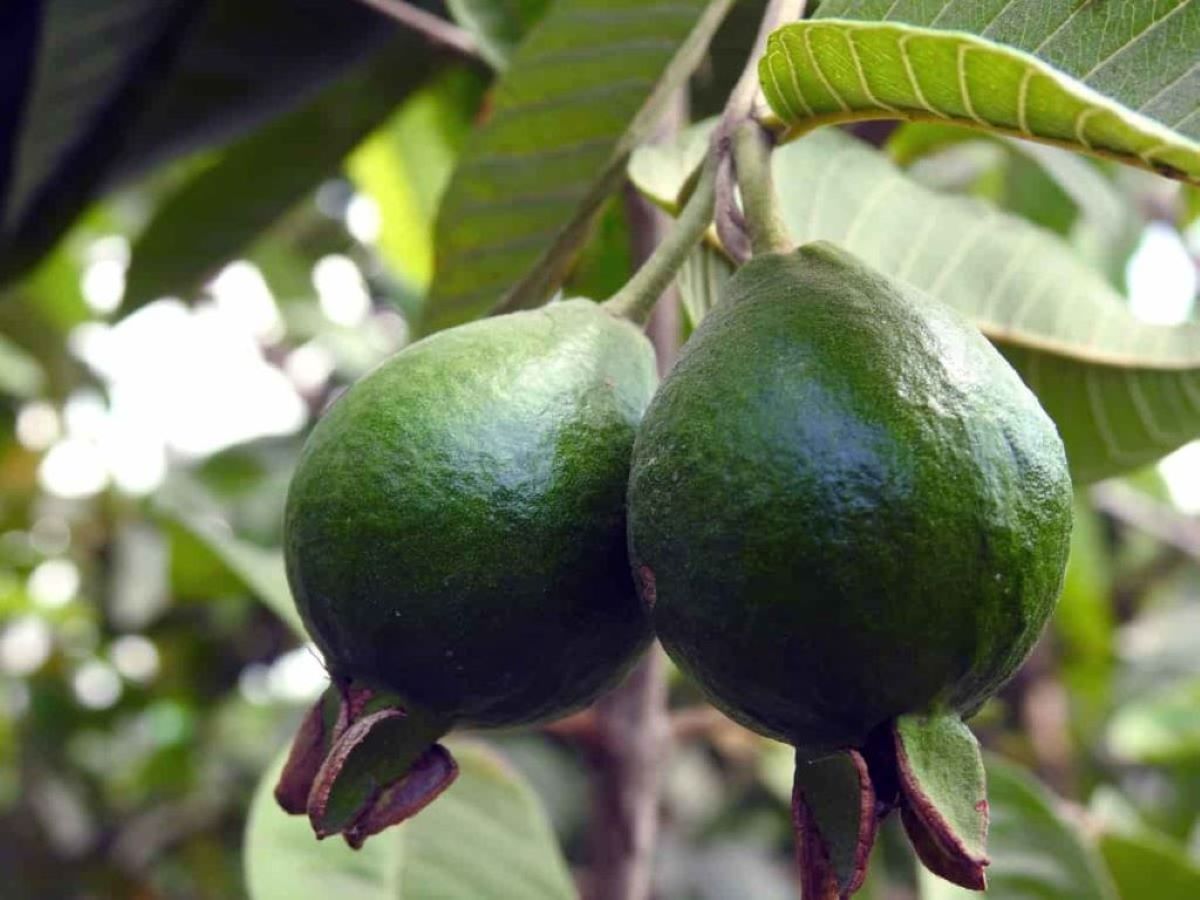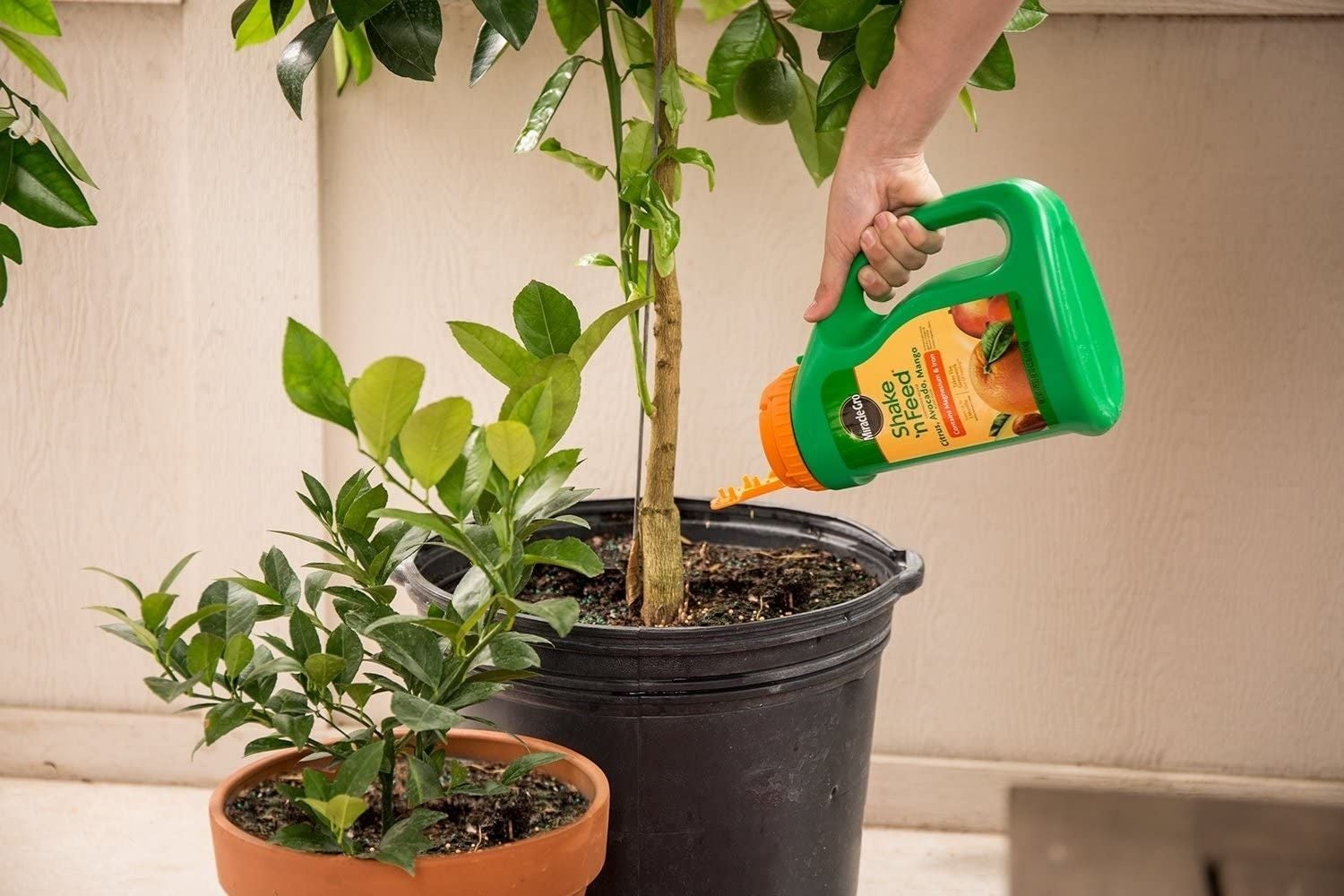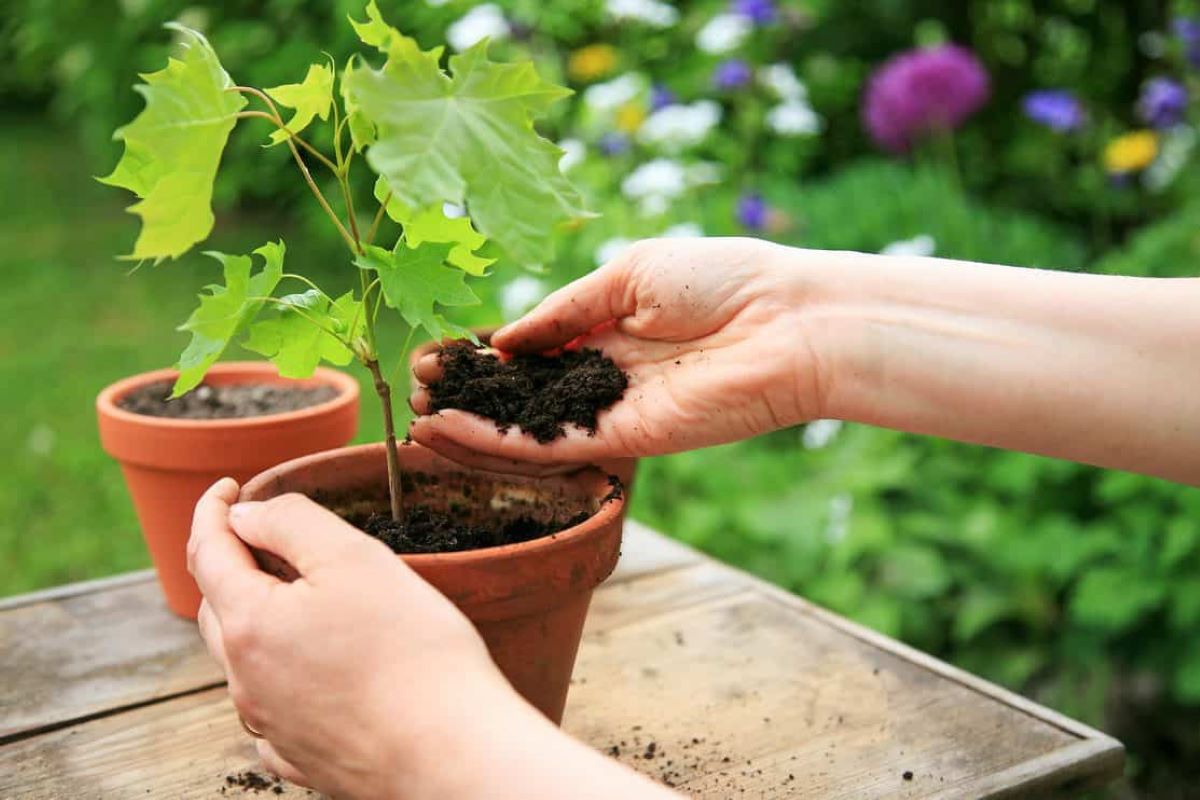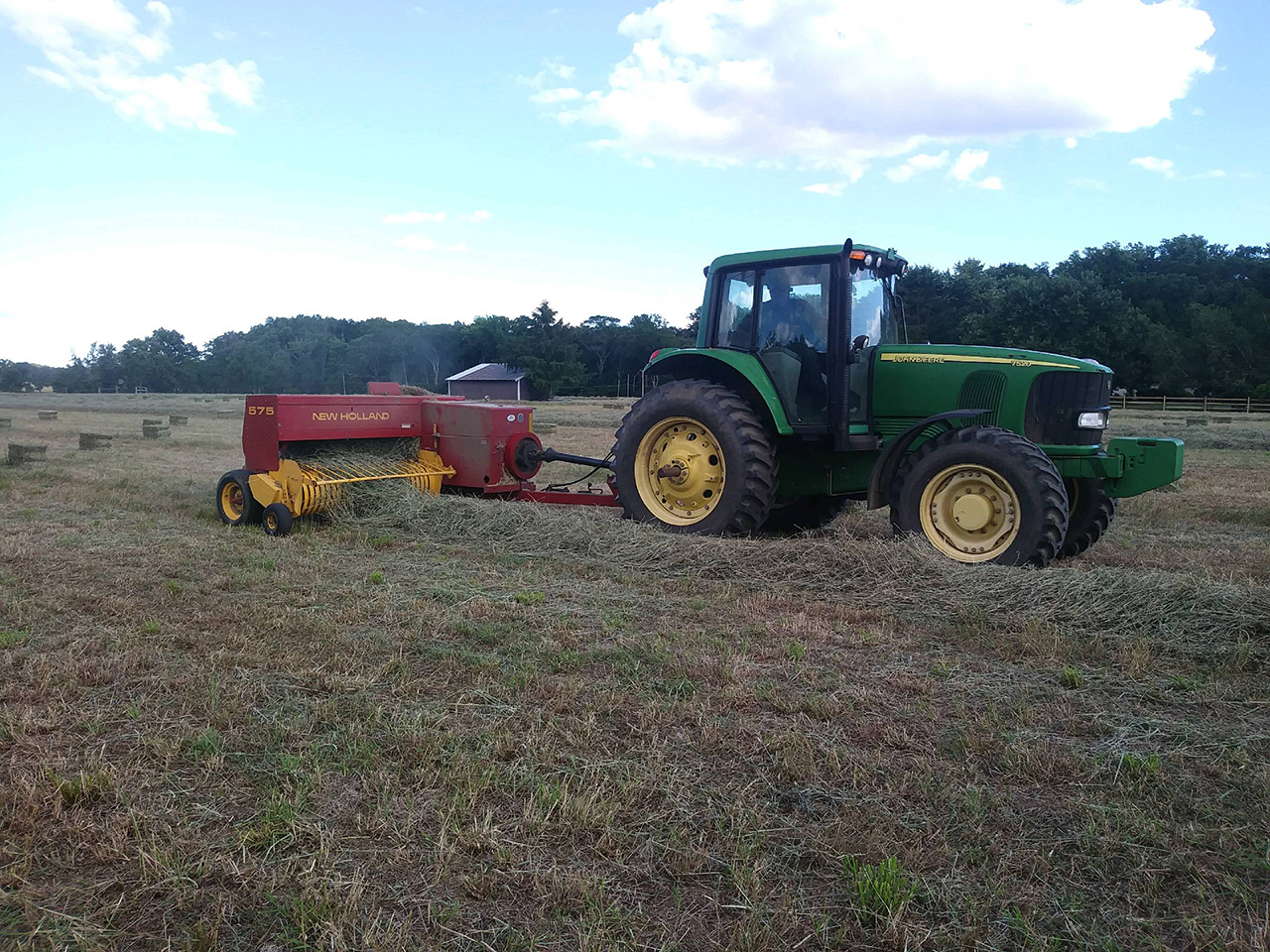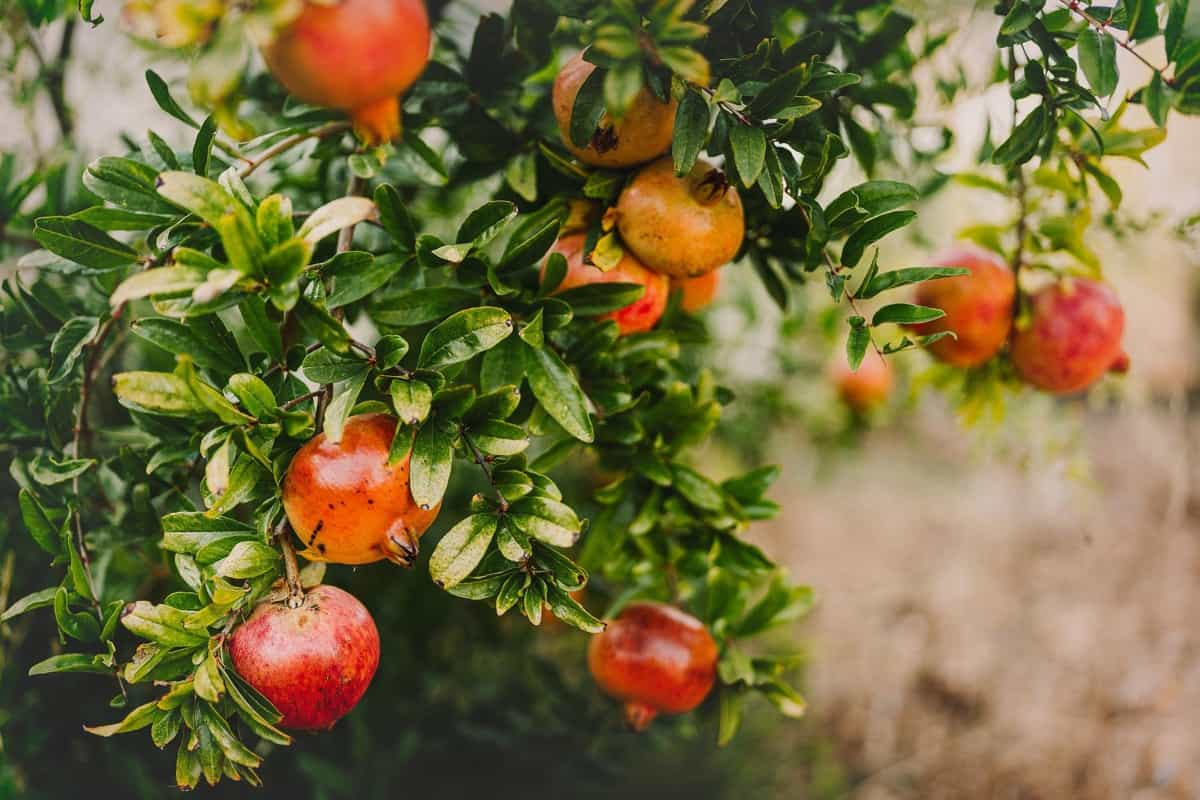Home>Types of Gardening>Edible Gardening>What Is The Best Fertilizer For Onions
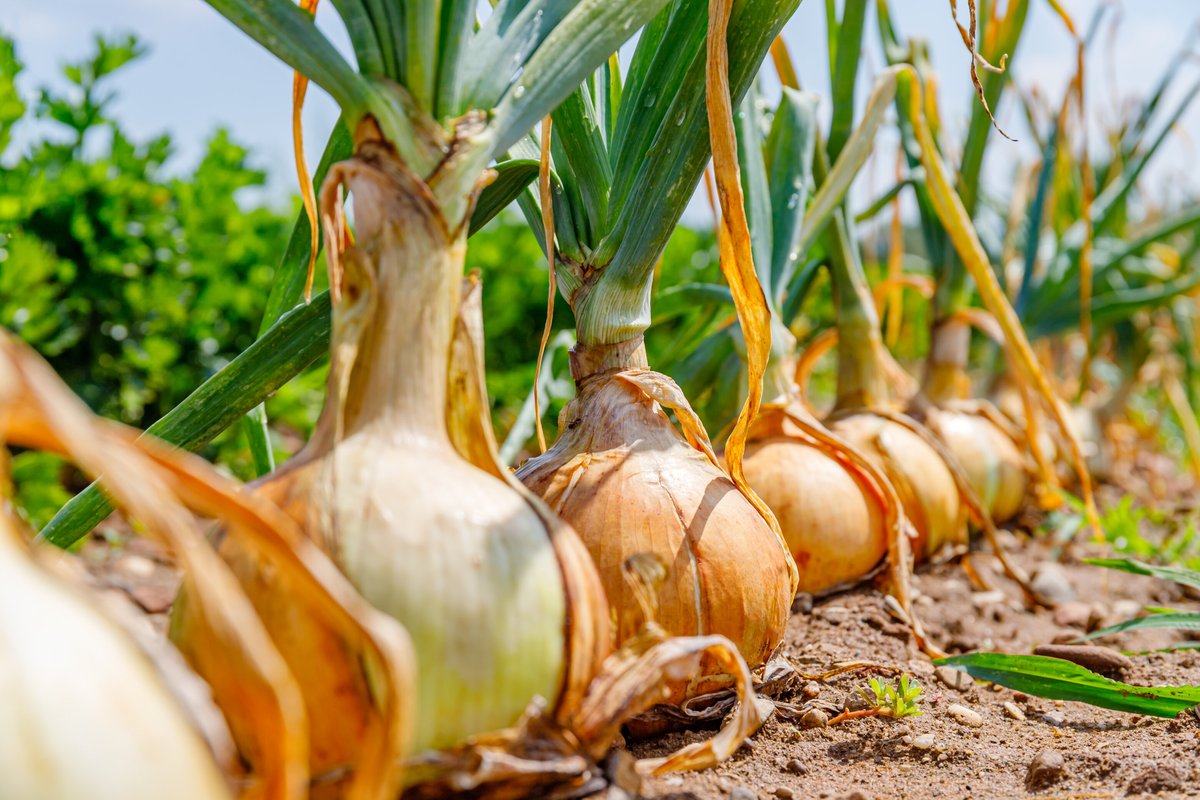

Edible Gardening
What Is The Best Fertilizer For Onions
Modified: January 22, 2024
Discover the best fertilizer for onions in your edible gardening journey. Enhance your onion growth and yield with expert tips and recommendations
(Many of the links in this article redirect to a specific reviewed product. Your purchase of these products through affiliate links helps to generate commission for Chicagolandgardening.com, at no extra cost. Learn more)
Table of Contents
Introduction
Welcome to the world of edible gardening, where you can grow your own fresh and delicious produce right in the comfort of your backyard. If you’re a gardening enthusiast or a beginner looking to start your own edible garden, there’s no doubt that you’ve come across the charm and versatility of growing onions. Onions are not only a staple in the kitchen but also a rewarding crop to cultivate.
However, like any plant, onions require proper care and nutrition to thrive and produce an abundant harvest. One vital aspect of onion cultivation is fertilization. Applying the right fertilizer can greatly impact the growth, flavor, and size of your onions. But with numerous fertilizer options available in the market, how do you choose the best one for your onions?
Throughout this article, we will explore the factors to consider when fertilizing onions, including the type of fertilizers available, the ideal NPK ratios, and the timing and frequency of application. Whether you prefer organic or inorganic fertilizers, we will provide you with the information you need to make an informed decision.
Additionally, we will highlight some of the best fertilizer brands for onions, ensuring that you have access to high-quality products that will optimize your onion growth. So, if you’re ready to give your onions the best possible care and nourishment, let’s dive into the world of onion fertilization!
Factors to Consider for Onion Fertilization
Before diving into the various types of fertilizers, it is important to understand the key factors to consider when fertilizing onions. These factors will help you create the optimal conditions for your onions to grow and thrive. Let’s take a closer look at these factors:
- Soil pH: Onions thrive in slightly acidic soil with a pH between 5.5 and 6.5. Before applying any fertilizer, it is crucial to test your soil’s pH level. If the pH is too low, you can amend it with lime to raise the pH, or if it is too high, you can amend it with sulfur to lower the pH.
- Nutrient Content: Onions require a balance of essential nutrients for optimal growth. The three primary nutrients are nitrogen (N), phosphorus (P), and potassium (K). Additionally, they need micronutrients like calcium, magnesium, and iron. Choosing a fertilizer that provides a good balance of these nutrients will promote healthy onion development.
- Organic vs. Inorganic Fertilizers: Consider whether you prefer to use organic or inorganic fertilizers. Organic fertilizers are derived from natural sources and release nutrients slowly over time. Inorganic fertilizers, on the other hand, are synthetic and release nutrients quickly. Both types have their advantages and disadvantages, so choose based on your gardening philosophy and the specific needs of your onions.
- Slow-Release vs. Water-Soluble Fertilizers: Some fertilizers release nutrients gradually over an extended period, while others dissolve quickly in water upon application. Slow-release fertilizers provide a steady supply of nutrients, reducing the risk of nutrient burn and leaching. Water-soluble fertilizers offer immediate nutrition but require more frequent application.
- Last Frost Date: Understanding your region’s last frost date is crucial for determining the ideal time to start fertilizing your onions. Generally, onions require fertilization after they have sprouted and established a strong root system.
- Environmental Factors: Consider the environmental conditions in your garden. Factors such as temperature, humidity, and sunlight can influence the growth and nutrient uptake of onions. Adjust your fertilization practices accordingly to provide the optimal growing conditions for your onions.
By taking these factors into account, you can make informed decisions about the type, timing, and frequency of fertilization for your onions. Remember that every garden is unique, so monitor your plants closely and make adjustments as needed to ensure their health and productivity.
Organic Fertilizers for Onions
If you prefer to cultivate your onions using organic methods, there are several excellent organic fertilizers available that can provide the necessary nutrients for their growth. Organic fertilizers are derived from natural sources, such as plant matter and animal waste, and offer a more sustainable approach to gardening. Here are some popular organic fertilizers for onions:
- Compost: Compost is often considered the “black gold” of organic gardening. It is rich in organic matter and nutrients, making it an excellent choice for fertilizing onions. You can apply compost as a top-dressing around the base of the onion plants or incorporate it into the soil prior to planting to provide a slow-release source of nutrients.
- Manure: Well-aged animal manures, such as cow or chicken manure, can be an effective organic fertilizer for onions. Manure is rich in nitrogen, phosphorus, and potassium, which are essential for healthy growth. However, it is important to ensure that the manure has been properly composted to avoid the risk of burning the onion plants.
- Bone Meal: Bone meal is an organic fertilizer made from ground animal bones. It is a great source of phosphorus, which is crucial for root development and overall plant growth. Mixing bone meal into the soil during planting or applying it as a side dressing can promote bulb formation in onions.
- Fish Emulsion: Fish emulsion is a liquid organic fertilizer made from processed fish waste. It is a concentrated source of nutrients, particularly nitrogen. Dilute fish emulsion with water according to the package instructions and apply it to the soil around the onion plants. The nutrients will be readily available for uptake by the plants.
- Kelp Meal: Kelp meal is derived from dried seaweed and is rich in micronutrients, including potassium, magnesium, and trace elements. It can be sprinkled around the base of the onion plants or mixed into the soil before planting. Kelp meal promotes overall plant health and enhances the flavor and storage quality of the onions.
Organic fertilizers not only provide essential nutrients for onions but also improve the soil structure and fertility in the long run. They enhance soil microbial activity, increase water-holding capacity, and promote beneficial soil organisms. However, it is important to follow the recommended application rates and guidelines to prevent over-fertilization, which can lead to nutrient imbalances or environmental issues.
Experiment with different organic fertilizers and find the ones that work best for your onions and your gardening practices. Remember to always read and follow the instructions on the fertilizer packaging, and monitor your plants’ response to ensure they are receiving the right nourishment for healthy growth.
Inorganic Fertilizers for Onions
If you prefer to use inorganic fertilizers for your onions, there are several options available that can provide the necessary nutrients efficiently and effectively. Inorganic fertilizers, also known as synthetic or chemical fertilizers, are manufactured to deliver specific nutrient ratios to plants. Here are some popular inorganic fertilizers for onions:
- Nitrogen-Phosphorus-Potassium (NPK) Fertilizers: NPK fertilizers are a common choice for onions. These fertilizers contain varying ratios of nitrogen (N), phosphorus (P), and potassium (K), the three primary nutrients essential for onion growth. Look for a fertilizer with a higher nitrogen content to promote leaf and stem growth in the early stages of onion development, and a higher phosphorus and potassium content to encourage bulb formation later on.
- Ammonium Nitrate: Ammonium nitrate is a high-nitrogen fertilizer that provides a quick release of nutrients. It is commonly used to boost plant growth in the early stages. However, it is important to use ammonium nitrate with caution and follow the recommended application rates, as excessive nitrogen can result in lush foliage but smaller bulbs.
- Potassium Sulfate: Potassium sulfate is an inorganic fertilizer that provides a concentrated source of potassium. Potassium is important for overall plant health, root development, and disease resistance. Applying potassium sulfate can enhance the flavor and quality of the onions and help them withstand stressors such as drought or disease.
- Calcium Nitrate: Calcium nitrate is a water-soluble form of calcium and nitrogen. Calcium is essential for cell wall development, preventing disorders such as blossom end rot in onions. This fertilizer can be applied as a side dressing or foliar spray during the growing season to ensure proper calcium uptake.
- Triple Superphosphate: Triple superphosphate is a concentrated form of phosphorus that promotes root development and flowering in onions. It can be applied during planting or as a side dressing to provide the necessary phosphorus for bulb formation.
Inorganic fertilizers are typically more readily available to plants, offering faster nutrient uptake. However, it is important to carefully follow the instructions on the fertilizer packaging to avoid over-fertilization, which can harm your plants and lead to nutrient imbalances in the soil.
When using inorganic fertilizers, it is also recommended to supplement with organic matter, such as compost or well-rotted manure, to improve overall soil health and fertility. This combination will help achieve optimal onion growth and development.
Take into consideration the specific requirements of your onions and the nutrient levels in your soil when selecting an inorganic fertilizer. Regular monitoring of your plants’ growth and response will guide you in adjusting the fertilization schedule and amounts as needed.
NPK Ratios for Onion Fertilizers
The NPK ratio refers to the relative proportions of nitrogen (N), phosphorus (P), and potassium (K) in a fertilizer. Choosing the right NPK ratio is essential for providing the necessary nutrients that onions require at different stages of growth. Here are some guidelines to help you select the appropriate NPK ratio for onion fertilizers:
- Early Growth (Leaf and Stem Development): During the early growth stage, onions require a higher nitrogen content to promote vigorous leaf and stem development. Look for fertilizers with a higher N value, such as 5-10-10 or 10-5-5. These ratios will provide a sufficient amount of nitrogen while also supplying phosphorus and potassium for overall plant health.
- Bulb Formation: As onions transition into bulb formation, they require a higher level of phosphorus and potassium. Fertilizers with a higher P and K content, such as 10-20-20 or 5-10-20, are suitable for this stage. Phosphorus plays a crucial role in root development and bulb formation, while potassium enhances the quality and flavor of the onions.
- Maintenance and Maturation: After bulb formation, the focus shifts to maintaining bulb quality and allowing the onions to fully mature. A balanced fertilizer with equal NPK ratios, such as 10-10-10 or 15-15-15, can provide the necessary nutrients to support bulb enlargement and ensure the onions reach their full potential.
It is important to note that the NPK ratio alone is not the sole factor in determining the effectiveness of a fertilizer. Other nutrients and micronutrients play a critical role in onion growth as well. Therefore, it is beneficial to choose a fertilizer that includes micronutrients like calcium, magnesium, and iron to ensure comprehensive nutrition for your onions.
When selecting a fertilizer, consider the specific needs of your onions and the nutrient levels present in your soil. Conducting a soil test can provide valuable insights and help you determine the appropriate NPK ratio for your onions’ fertilizer needs. Additionally, periodic observation and assessment of your onions’ growth and appearance will allow you to adjust the fertilization schedule and ratios accordingly.
Remember, fertilizers are meant to supplement the natural soil fertility and should be used in moderation. Over-application of fertilizers can lead to nutrient imbalances, environmental pollution, and decreased plant health. Always follow the recommended application rates provided by the fertilizer manufacturer and ensure proper irrigation and drainage to prevent nutrient runoff and leaching.
Time and Frequency of Onion Fertilization
The timing and frequency of onion fertilization are crucial for providing the necessary nutrients at the right stages of growth. Understanding when and how often to fertilize your onions will ensure optimal plant health and maximum bulb development. Here are some guidelines for timing and frequency of onion fertilization:
- Pre-Planting: Before planting your onion sets or transplants, it is beneficial to prepare the soil by incorporating organic matter, such as compost or well-rotted manure. This will provide a slow-release source of nutrients and improve soil structure. Mix the organic matter into the soil at least a few weeks before planting.
- At Planting: When planting your onion sets or transplants, you can incorporate a balanced fertilizer into the soil. Use a low-to-moderate rate of fertilizer, such as 10-10-10, and mix it evenly into the soil around the planting hole. This will provide a kick-start of nutrients to support early growth.
- Early Growth Stage: Once the onion plants have sprouted and established a strong root system, you can begin applying additional fertilizers. Apply a side dressing of fertilizer with a higher nitrogen content, such as 5-10-10 or 10-5-5, four to six weeks after planting. This will promote healthy leaf and stem development.
- Bulb Formation Stage: As the onions enter into the bulb formation stage, it is important to provide them with adequate phosphorus and potassium. Apply a side dressing of fertilizer with a higher phosphorus and potassium content, such as 10-20-20 or 5-10-20, when the bulbs are halfway formed. Repeat this application every four to six weeks until the bulbs are fully developed.
- Maturation Stage: During the maturation stage, the focus is on allowing the onions to fully mature and develop their maximum size and flavor. Reduce the frequency of fertilization and avoid applying any fertilizer in the last few weeks leading up to harvest. This allows the bulbs to adequately ripen and improves their storage quality.
It is important to note that the exact timing and frequency of fertilization may vary depending on factors such as soil conditions, climate, and specific onion varieties. Regular monitoring of the plants’ growth and appearance will guide you in adjusting the fertilization schedule and amounts as needed.
Ensure proper irrigation after fertilization to help the nutrients reach the root zone. Watering deeply and infrequently is generally recommended to encourage strong root development and prevent nutrient leaching. Mulching around the onions can also help conserve moisture and regulate soil temperature.
Remember, it is better to slightly under-fertilize your onions than to over-fertilize. Over-fertilization can lead to nutrient imbalances, excessive foliage growth, and smaller bulb development. Always follow the recommended application rates provided by the fertilizer manufacturer and adjust based on your specific growing conditions.
Best Fertilizer Brands for Onions
When it comes to selecting the best fertilizer brands for your onions, there are several reputable options available that offer high-quality products specifically formulated for vegetable gardens. While personal preferences and availability may vary, here are some top fertilizer brands known for their effectiveness in promoting onion growth and development:
- Down to Earth: Down to Earth is a popular brand that specializes in organic fertilizers. They offer a range of products, including all-purpose vegetable fertilizers and specialized blends for bulb development. Their fertilizers are made from natural ingredients, such as plant-based nutrients and mineral-rich rock powders, ensuring a balanced and sustainable approach to fertilizing onions.
- Dr. Earth: Dr. Earth is another trusted brand that provides organic fertilizers for various plants, including onions. Their fertilizers are formulated with high-quality ingredients, such as fish meal, seaweed extract, and beneficial soil microbes. These products release nutrients slowly over time, providing long-lasting nourishment for onions without the risk of over-fertilization.
- Espoma: Espoma is well-known for its line of organic fertilizers and soil amendments. Their vegetable-specific fertilizers, such as the Tomato-tone and Garden-tone, can also be beneficial for onions. These fertilizers are enriched with a blend of organic nutrients that promote growth, improve soil health, and enhance overall plant vigor.
- Miracle-Gro: Miracle-Gro is a popular name in the world of gardening, known for its range of synthetic fertilizers. While not organic, their water-soluble All Purpose Plant Food can be an effective choice for onions. This fertilizer contains a balanced mix of nutrients and is designed to provide quick, visible results in promoting plant growth.
- Jobe’s Organics: Jobe’s Organics offers a selection of organic fertilizers specifically designed for vegetable gardens. Their Vegetable & Tomato Granular Fertilizer is a slow-release formula that provides a steady supply of nutrients to promote healthy onion growth. It is enriched with beneficial microbes that enhance soil fertility and maximize nutrient absorption.
These are just a few examples of the best fertilizer brands available for onions. It is important to consider your specific gardening needs, preferences, and availability when selecting a fertilizer brand. Always read and follow the instructions provided by the manufacturer to ensure proper and safe application.
Additionally, remember that fertilizers are best used as a supplement to a well-balanced soil and proper gardening practices. Regular soil testing can help you determine the nutrient levels and adjust your fertilization approach accordingly. Observing your onions’ growth and overall health will also guide you in determining the effectiveness of the chosen fertilizer brand and allow you to make necessary adjustments as needed.
Conclusion
Cultivating onions in your own edible garden can be a rewarding and fulfilling endeavor. To ensure the success of your onion crop, proper fertilization is crucial. By considering factors such as soil pH, nutrient content, and choice of organic or inorganic fertilizers, you can provide the necessary nutrition for your onions to thrive. The NPK ratios and timing of fertilizer applications play a vital role in supporting different stages of growth, from early leaf development to bulb formation and maturation.
Organic fertilizers such as compost, manure, bone meal, fish emulsion, and kelp meal offer a sustainable approach while improving soil health in the long run. Inorganic fertilizers such as NPK formulas provide efficient and quick-release nutrients to meet the specific needs of onions at various growth stages.
Several reputable fertilizer brands, including Down to Earth, Dr. Earth, Espoma, Miracle-Gro, and Jobe’s Organics, offer high-quality options for nourishing your onions. These brands offer organic and synthetic fertilizers that are tailored to promote onion growth and development.
Remember to closely monitor your onions’ growth, adjust fertilization practices as needed, and follow recommended application rates to prevent over-fertilization. Proper watering and soil management, along with the use of organic matter, can also contribute to the overall health and productivity of your onions.
So, whether you’re a seasoned gardener or beginner, by paying attention to the specific needs of your onions and providing them with the right fertilization, you can enjoy a bountiful harvest of flavorful and healthy onions straight from your own garden.
